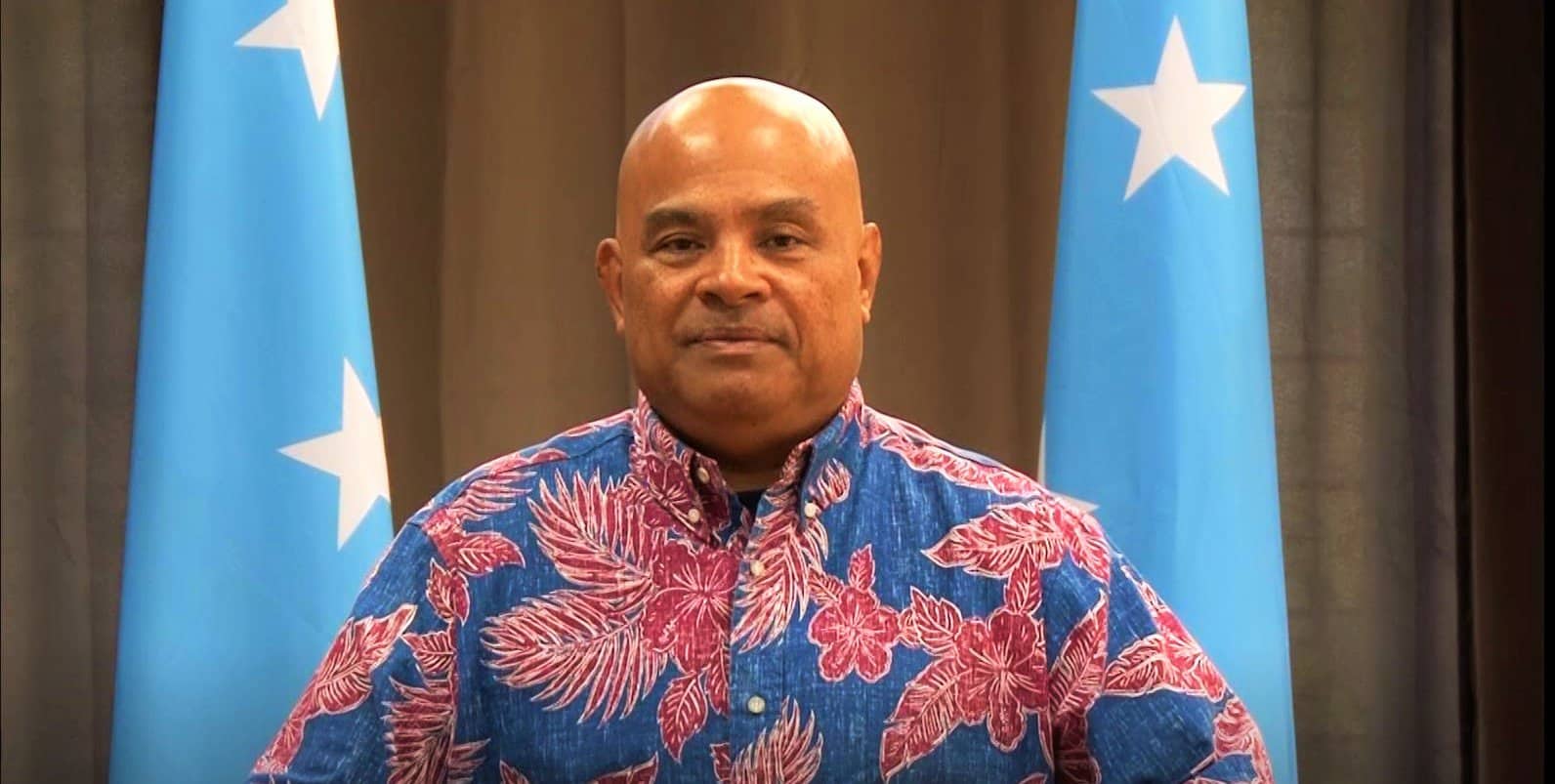Months after exiting office, the former president of the Federated States of Micronesia has urged American lawmakers to keep their promise of approving funds for the Compact of Free Association (Cofa) pact, warning that “nations can be looking elsewhere”.
The Cofa treaty has steered U.S. ties with the strategically located Pacific Island nation for decades.
“The livelihood of our nation hinges upon approval of the extension of our treaty, which has expired as of the end of September,” David Panuelo, who stepped down in May after a four-year term as president, told the South China Morning Post in Washington on Friday.
The situation “puts our country in a very awkward position,” Panuelo added, since many legislations back home were counting on new levels of funding from Cofa renewals.
He called on the U.S. to demonstrate the bipartisan support “as promised when we signed the treaties, and that funding would be forthcoming and supported” by both the Democratic and Republican parties.
After administering Micronesia, the Marshall Islands and Palau under a UN trusteeship following World War II, the U.S. signed international treaties with each as sovereign Pacific nations in 1986 and 1994 under the Cofa.
The pacts granted the U.S. military exclusive access to each nation’s land, air and sea in exchange for financial assistance and permission to legally live, work and go to school in the U.S.
The economies of the three island nations remain heavily reliant on American subsidies, which account for roughly 40 per cent of Micronesia’s annual revenue. For the Marshall Islands, U.S. funding makes up about 70 percent of its GDP. Palau, meanwhile, is on the verge of hitting a debt crisis on 01 January.
The country’s GDP dropped by 30 per cent between 2016 and 2019, as the flow of Chinese tourists dropped by half after Palau reiterated its support for Taiwan, a self-ruled island claimed by Beijing as an integral part of its sovereign territory.
The Cofa programmes for the Marshall Islands and Micronesia lapsed on 30 September, while for Palau it ends next year.
New deals – under which U.S. President Joe Biden has committed a total of US$7.1 billion over 20 years to the three nations – have already been negotiated and renewed. But those are still only on paper, as the largest-ever congressional budget request for the region remains in limbo amid a partisan clash over federal spending. Some House Republicans are now asking for “offsets,” meaning any funds given to the Cofa nations need to be taken from somewhere else.
Both chambers of the U.S. Congress are expected to vote next week on the final version of the 2024 National Defence Authorisation Act (NDAA), which establishes the top-line budget and directs Pentagon policy for the coming financial year. But Cofa renewals are unlikely to make the cut either in the NDAA or in a proposed US$150 billion supplemental package for Ukraine, Israel and Taiwan.
Approval of the Cofa funds has become a crucial part of U.S. efforts to counter China in the region.
“When they say it’s a priority, but they don’t take action on it and can be delayed a year or two years, nobody knows, we don’t like uncertainty,” Panuelo said.
“[That] can put us in a position that can compromise the trust, that we’ve always counted [on the U.S, given] competing powers in the region that are wanting to see this fail.”
“Nations can be looking elsewhere for development, and that comes with the strategic cooperation,” Panuelo cautioned.
Over the past decade, Beijing has remained focused on deepening its ties in the Pacific through increased development assistance, diplomacy and security cooperation.
Last year, Solomon Islands signed a security pact with China, prompting concerns among the U.S. and its allies and partners over the possibility of a Chinese military base there.
Panuelo had at the time written to Solomons Prime Minister Manasseh Sogavare, expressing his opposition to the agreement.
On Friday, Panuelo claimed Beijing had been trying to gain influence “in our countries’ decision making,” alleging that during his presidency Chinese officials “attempted to aggressively go against” some of his decisions.
The Chinese embassy in Micronesia did not immediately respond to a request for comment.
Cleo Paskal, a non-resident senior fellow for the Indo-Pacific at the Foundation for Defence of Democracies, a Washington think tank, described the delay in getting the funds as “a betrayal of an old, deep relationship” with the three Cofa nations, that would allow China’s “political warfare room to manoeuvre and grow.” “If the U.S. isn’t willing to help them with the things that they care about – schools, healthcare – then there’s an opening for them to ask themselves legitimately, frankly, why are we doing this?”
